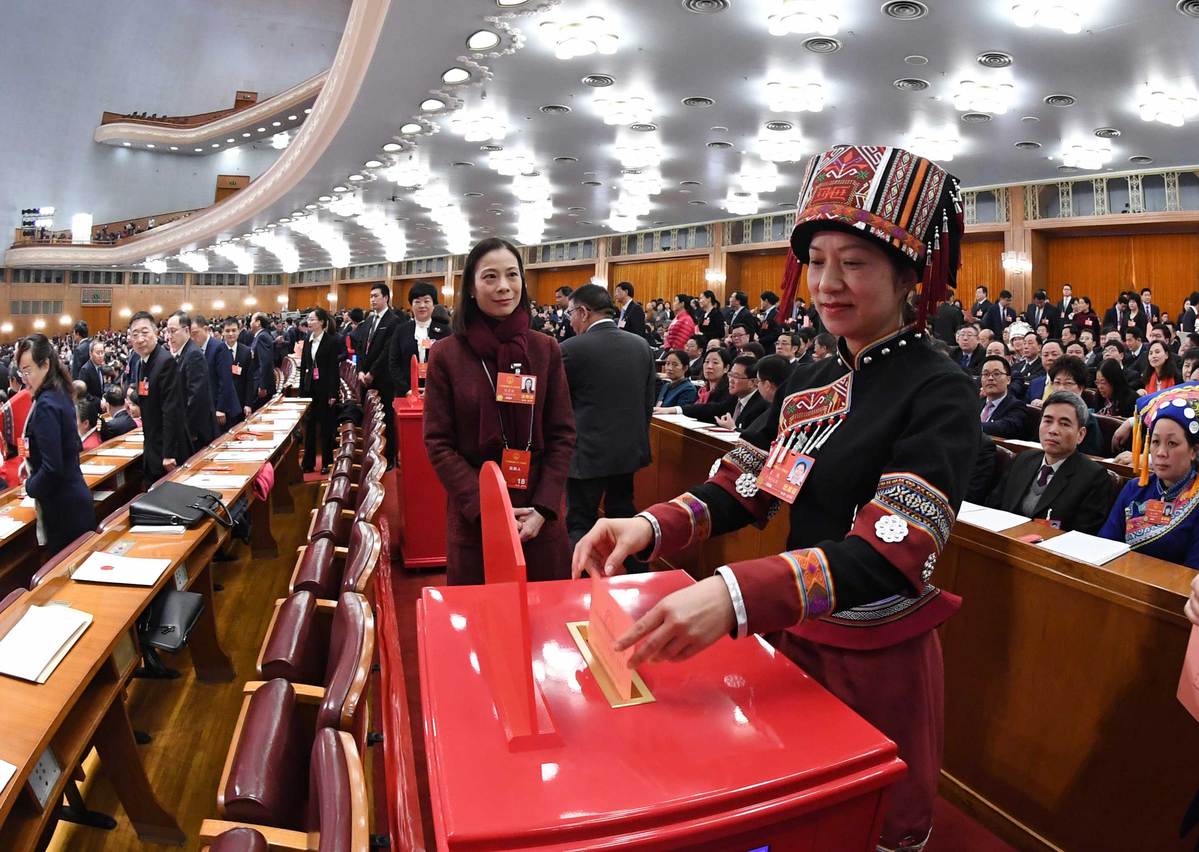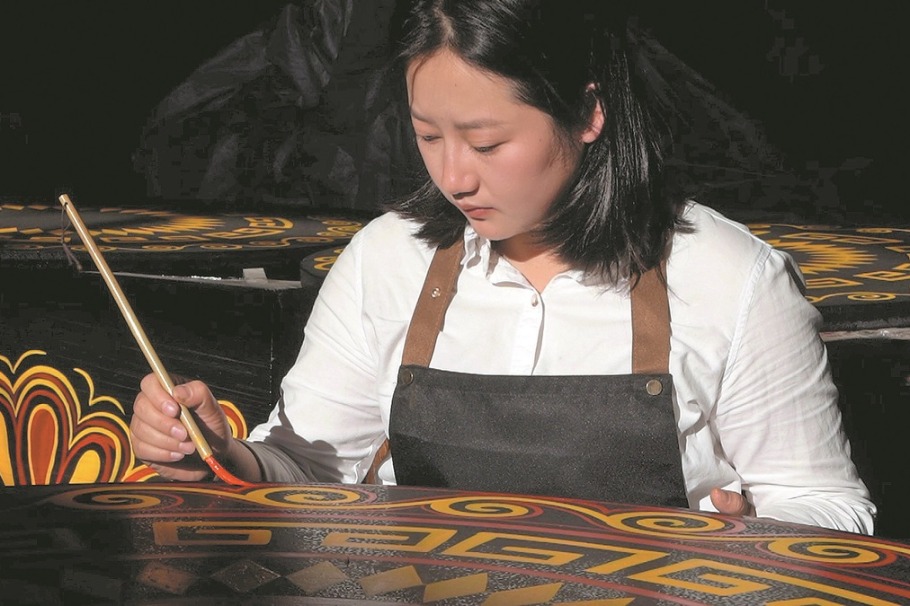China's national legislature adopts constitutional amendment


From 1988 to 1999, amendments included reform of land-use rights, a legal status for the private economy, the theory of building socialism with Chinese characteristics, replacing the phrase "planned economy" with "socialist market economy," and incorporation of Deng Xiaoping Theory.
The most recent amendment in 2004 protected private property and human rights and gave the Theory of Three Represents constitutional authority.
China's Constitution has been developed along with the people's practices of building socialism with Chinese characteristics under the CPC leadership, according to Li Shuzhong, vice president of the China University of Political Science and Law.
"The amendment makes the Constitution in keeping with the times by incorporating new achievements, experiences and requirements of the Party and the country's development as socialism with Chinese characteristics has entered a new era," Li said.
A constitutional change is either proposed by the NPC Standing Committee or by more than one-fifth of all NPC deputies, and then requires the approval of two-thirds or more of NPC deputies during the annual session.
- Dongying birdwatching: More than birds, legacy in sky
- Ming Dynasty stone street attracts visitors in Guizhou
- Life imprisonment for ex-Heilongjiang official in bribery, embezzlement case
- Poetic autumn scenery unveiled at 99 Dragon Pools in Yunnan
- Ice-and-snow tourism scenic area opens in NE China
- High-speed rail linking China's old revolutionary base with Xi'an begins trial operation





































